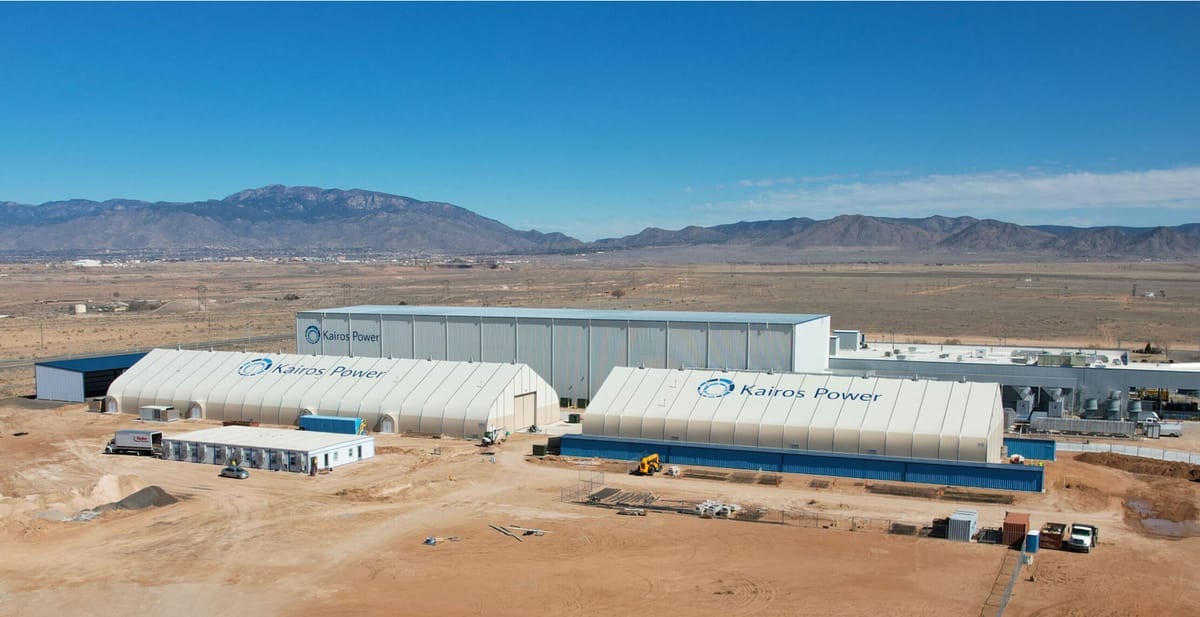
Google has signed an agreement with Kairos Power to purchase electricity from its fleet of small modular reactors (SMRs). This marks the first corporate commitment to multiple deployments of a single advanced reactor design in the United States. By 2035, Kairos Power and Google plan to bring 500 megawatts (MW) of nuclear power to the grid, with the first reactors set to become operational by 2030.
This announcement comes at a time when the tech industry's energy demands are soaring, largely driven by advancements in generative AI and the expansion of data centers. AI models require enormous computational power, which in turn leads to significant electricity consumption. Goldman Sachs estimates that data center power use in the U.S. is expected to nearly triple by 2030, necessitating around 47 gigawatts of new generation capacity. This surge has prompted tech companies to explore alternative power sources to meet their growing energy needs while adhering to carbon reduction goals.
Google's partnership with Kairos Power is part of a broader trend among tech giants to invest in nuclear energy as a solution for stable, round-the-clock clean power. Just last month, Microsoft signed an agreement that will see the revival of the Three Mile Island nuclear facility in Pennsylvania, and Amazon has partnered with Constellation Energy. These moves reflect a collective push within the industry to secure reliable, emissions-free energy to support the rapid scaling of AI technologies.
While generative AI has grown at an unprecedented pace, energy infrastructure, particularly nuclear power, has historically advanced at a slower rate due to heavy regulation and safety concerns. This disparity raises questions about whether nuclear energy can keep pace with the accelerating energy demands of AI. Nevertheless, tech leaders like Google are betting on advanced nuclear technologies to bridge this gap. Michael Terrell, Google's Senior Director of Energy and Climate, emphasized the necessity of reliable, clean power sources to support AI expansion. "The grid needs these kinds of clean, reliable sources of energy to build out AI in a way that’s more around-the-clock," he said, highlighting the importance of combining nuclear energy with existing renewables.
Kairos Power's fluoride salt-cooled, high-temperature reactor (KP-FHR) technology is central to this partnership. Unlike traditional nuclear reactors that use water as a coolant, Kairos Power's SMRs employ a molten salt mixture, allowing the reactors to operate at low pressure with improved inherent safety features. These characteristics reduce construction timelines and costs compared to conventional nuclear plants, a major factor in Google's decision to invest in this technology.
Under the agreement, Kairos will develop, build, and operate the reactors, selling power directly to Google through Power Purchase Agreements (PPAs). The aim is not only to supply Google’s energy needs but also to demonstrate the viability of small modular reactors, contributing to the broader decarbonization of electricity grids. Each deployment is expected to contribute valuable lessons that help optimize future reactor construction, accelerating commercialization.
However, the adoption of small modular reactors isn’t without challenges. Regulatory approval from the U.S. Nuclear Regulatory Commission (NRC) remains a complex process, though Kairos has already received a permit for its Hermes demonstration reactor in Tennessee. Critics of SMRs also point out concerns regarding high costs and potential waste management issues. Despite these hurdles, the partnership between Google and Kairos Power sends a strong demand signal to the market, suggesting confidence in SMRs as a commercially viable pathway to sustainable, scalable energy.
As AI continues to drive energy consumption to new heights, the tech industry's embrace of nuclear power could shape the future of clean energy. Google's approach, along with similar moves by Microsoft, Amazon, and others, reflects a pragmatic response to the challenge of balancing surging power needs with climate commitments, leveraging nuclear energy as a key component in achieving a sustainable energy future.

